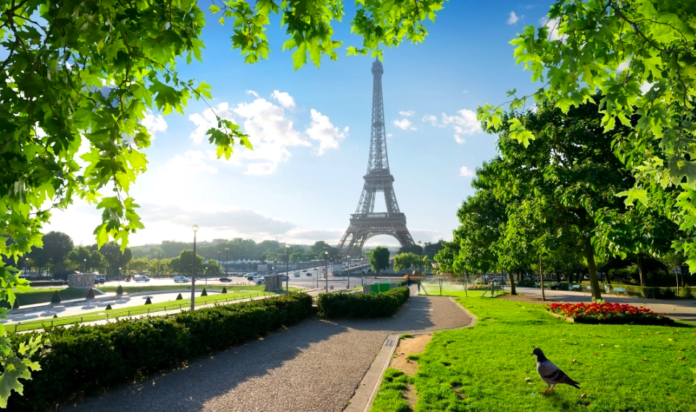
Paris is embarking on an ambitious plan to transform its urban landscape by replacing 60,000 parking spaces with trees by 2030. This initiative aims to combat rising temperatures and enhance the city’s livability.
Urban Heat Mitigation
The primary goal of this project is to address the urban heat island effect, which causes cities to experience higher temperatures than surrounding rural areas. By introducing more greenery, Paris seeks to create natural cooling zones, making the city more resilient to extreme heat events.
Expanding Green Spaces
This initiative is part of a broader strategy to add over 740 acres (approximately 300 hectares) of green space in Paris by 2030, with 10% of that target expected to be achieved by 2026. The plan includes creating “oasis squares” in each of the city’s 20 arrondissements, providing residents with shaded areas to escape the heat.
Environmental and Social Benefits
Replacing parking spaces with trees offers multiple advantages:
Improved Air Quality: Trees absorb pollutants and produce oxygen, contributing to cleaner air.
Enhanced Biodiversity: New green spaces support urban wildlife and promote ecological diversity.
Increased Property Values: Green neighborhoods are often more desirable, potentially boosting local property markets.
Social Well-being: Accessible green areas provide spaces for recreation and community engagement, improving residents’ quality of life.
Challenges and Considerations
Implementing this plan requires careful consideration of urban mobility and infrastructure. Reducing parking spaces may necessitate improvements in public transportation and the promotion of alternative mobility solutions, such as cycling and walking, to accommodate residents’ needs.
Global Implications
Paris’s initiative serves as a model for other cities facing similar challenges. By prioritizing green infrastructure, urban centers worldwide can enhance resilience to climate change, improve air quality, and create more livable environments for their inhabitants.
In summary, Paris’s plan to replace 60,000 parking spaces with trees by 2030 reflects a forward-thinking approach to urban planning. By expanding green spaces, the city aims to mitigate heat, enhance air quality, and improve the overall well-being of its residents, setting a precedent for sustainable urban development globally.

